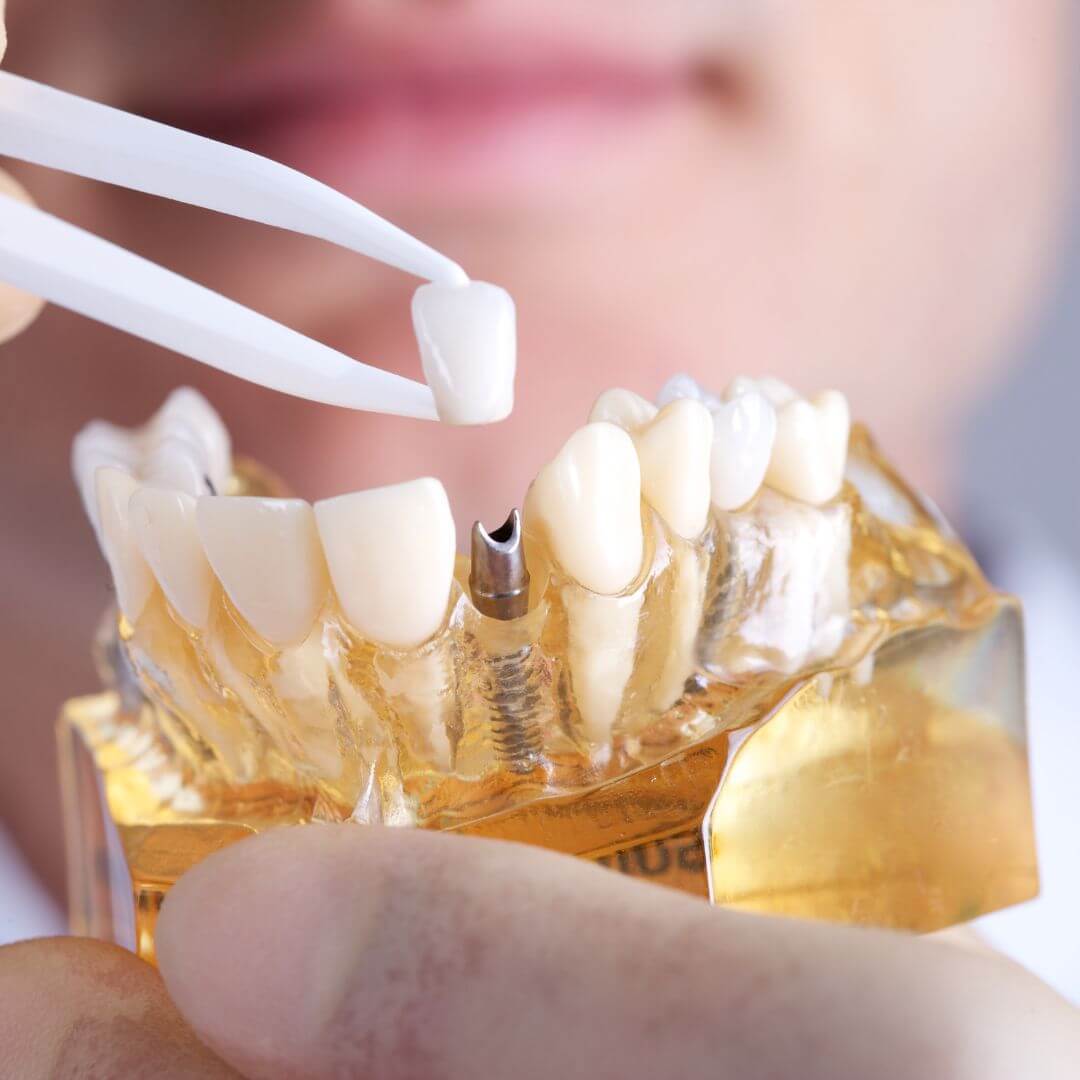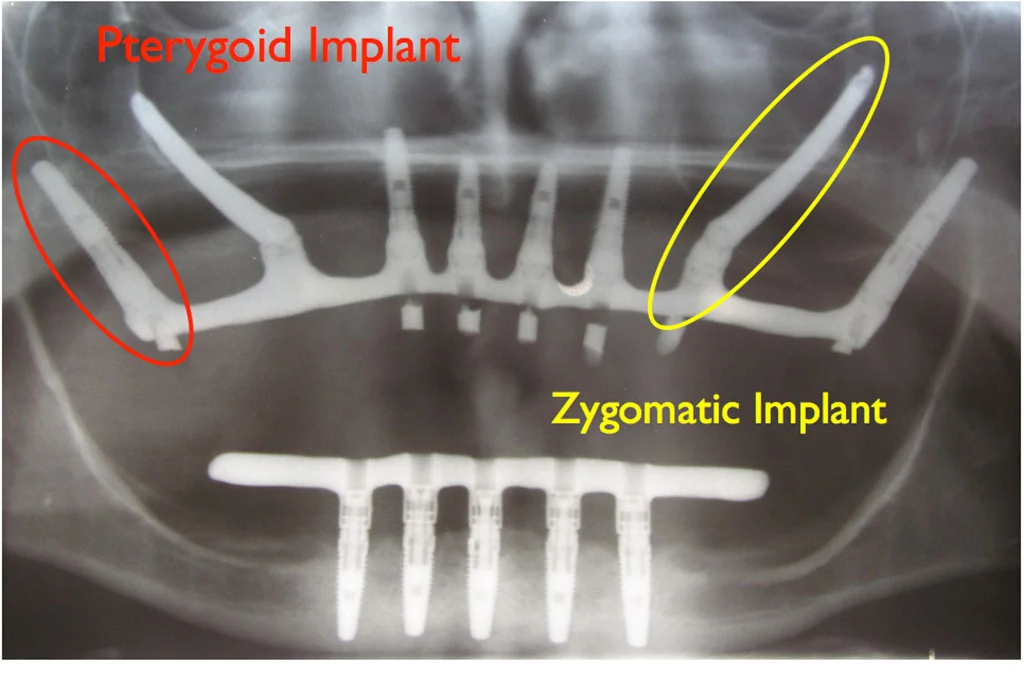IMPLANTS WITHOUT BONE GRAFT
IMPLANTS WITHOUT BONE GRAFT
What are my options?
Have you been told that you don’t have enough bone for dental implants or that dentures are your only option? Some people may stop their research at this point, but there are some revolutionary procedures made for patients just like you.
First, it’s vital to do your due diligence and find a dentist with extensive expertise, training and experience beyond basic dental implant education. Dental implants are not one size fits all – they are complex, sophisticated devices requiring specialized training to fit and place properly.
At our practice, I treat patients with the most severe bone loss and have the experience and surgical skills to provide these procedures.

If you are missing bone, there are two main options:
1. Dental Implants Utilizing Existing Bone
With these procedures, my hope is to limit the amount of grafting necessary to provide permanent dental implants so you can return to living a high quality of life quickly.
Depending on where in your mouth you are missing bone and teeth, there are several ways to use existing bone:
For Upper Jaw Bone Loss:
ZYGOMATIC IMPLANTS
Differing from traditional implants, zygomatic implants are extra-long and anchored in your cheek bone, which is called the "zygoma." This treatment is much less invasive than bone grafting and shortens the treatment time.

Pterygoid Implants
A specialty type of implant that is placed in the upper molar region where your wisdom teeth used to be. A pterygoid implant cannot stand alone. It must be anchored to other implants in order for it to be usable.

Trans-Sinus Implants
These dental implants go through the sinus and into the side portion of the nose called the piriform rim. The purpose is to engage the hard, “cortical” bone.
Prosthetic Rebuilding
This uses pink ceramic porcelain to fill in the voids instead of grafting.
For Lower Jaw Bone Loss
Subperiosteal Implant
Not as common anymore, these dental implants are placed under the gum but on, or above, the jawbone. This type of implant may be used in patients who cannot or do not want to undergo a bone augmentation procedure to rebuild bone
Nerve Repositioning
In unique situations, this procedure is done to replace the lower back teeth if your bone is not tall enough to have an implant. There also needs to be a lack of space from in-between your top and bottom teeth.
Tilted Implants
Positing implants in angulation with multi-unit abutments , thereby avoiding additional procedures like grafting and nerve repositioning. This is most preferred practice in full mouth cases
With these procedures, our main goal is to eliminate your need for traditional or snap-on dentures, avoid major bone-grafting, and shorten the time to have beautiful, natural teeth.
Book Your Appointment
Are you ready to elevate your smile and transform your appearance? Schedule a consultation with Dr. Namratha today and take the first step towards a more confident, radiant you.
